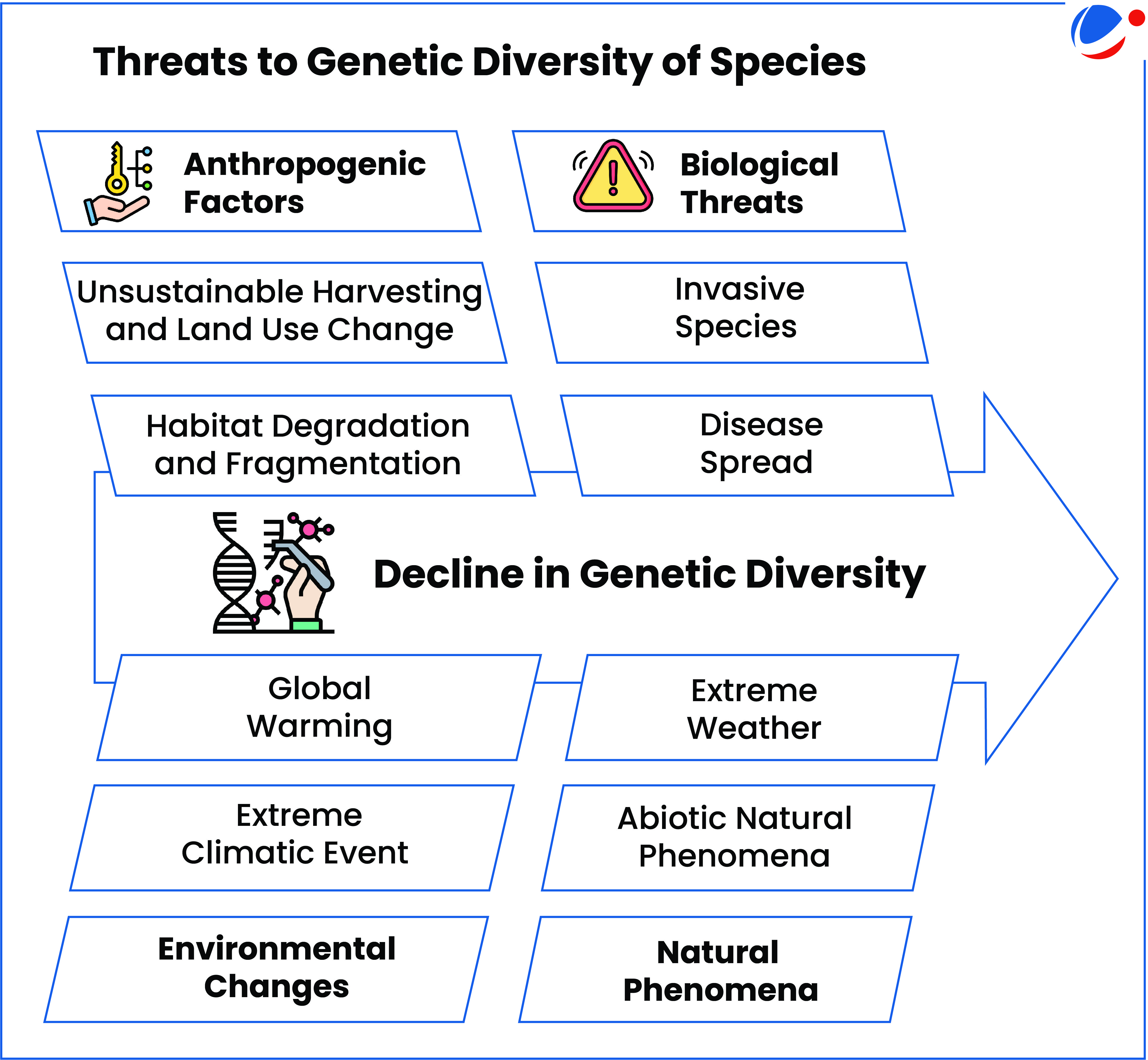The study has analyzed data spanning 3 decades and examined >600 species of animals, plants and fungi across terrestrial and marine ecosystems.
- Genetic Diversity refers to the range of inherited traits within a species critical for a population to adapt to changing environments. It is essential for long-term survival of species populations and ensuring ecosystem resilience.
Key findings of the study

- Extent of genetic loss: 2/3rd of studied populations experienced decline in genetic diversity, with less than half receiving any conservation management.
- Impact Areas: Genetic loss occurred regardless of IUCN status and is not exclusive to rare and threatened species.
- The loss of genetic diversity was high especially among birds and mammals.
- Conservation Measures: Habitat restoration, disease control, captive breeding can help in reversing genetic loss.
Various Initiatives
- Convention on Biological Diversity’s Kunming–Montreal Global Biodiversity Framework: It includes targets for safeguarding genetic diversity of all species.
- In-situ Conservation: Protected Areas, National Parks etc. E.g. Project Tiger
- Ex-situ Conservation: Zoological Parks, Gene Banks etc.
- Technological Advancement: Environmental DNA (eDNA), Genome Sequencing, DNA Barcoding.
Conclusion
Maintaining genetic diversity safeguards biodiversity against future environmental changes and ensures the continued benefits that nature provides to society.





